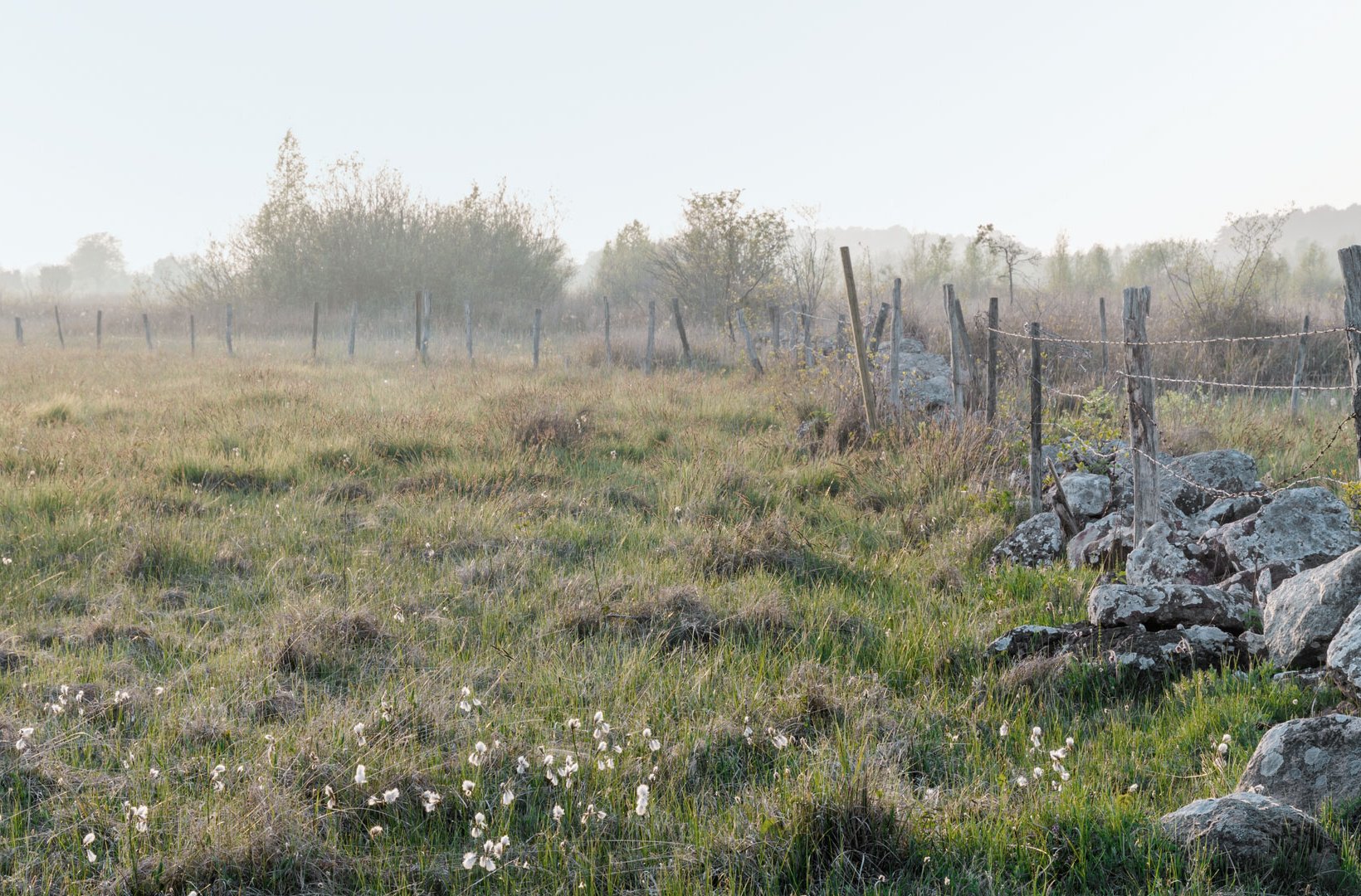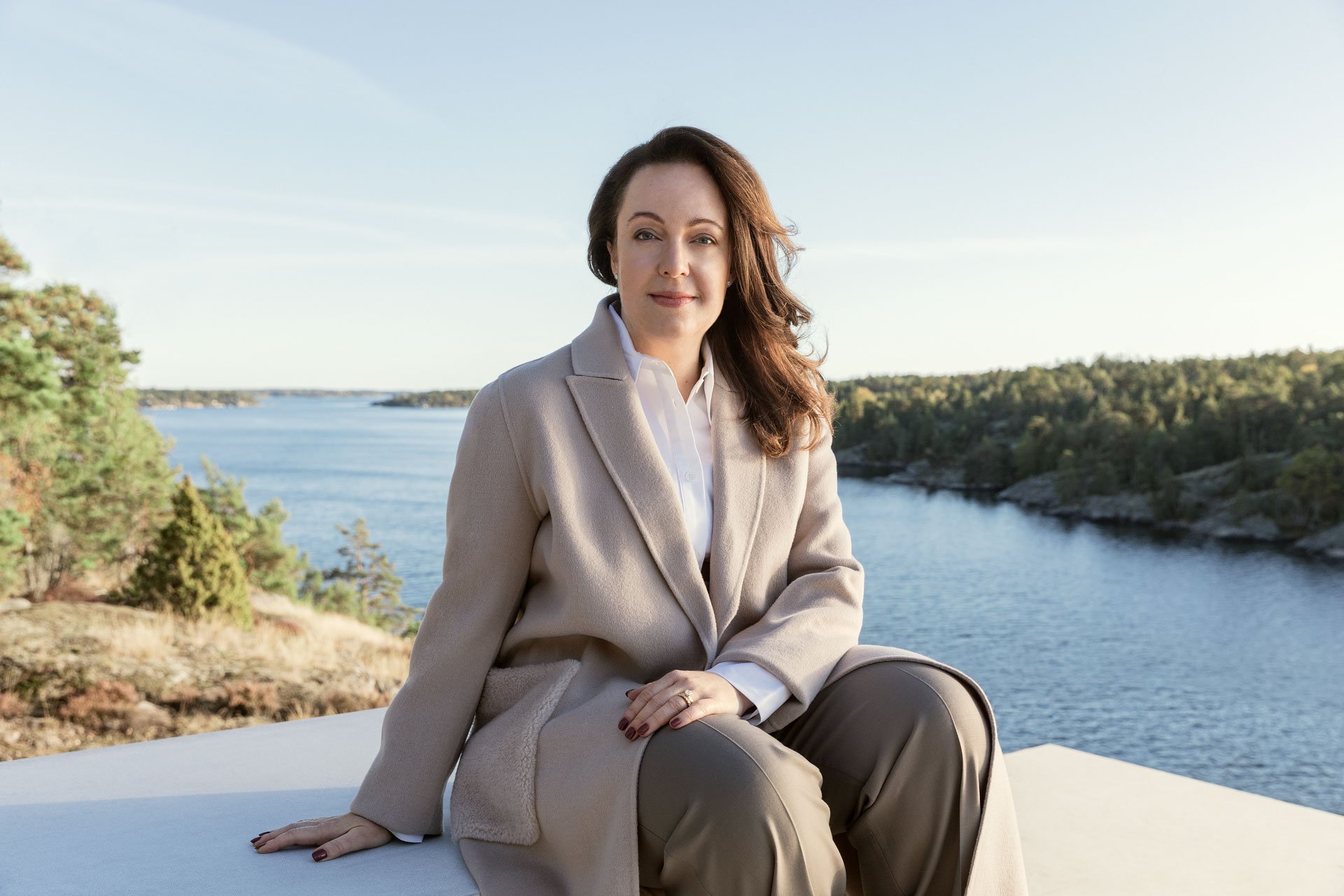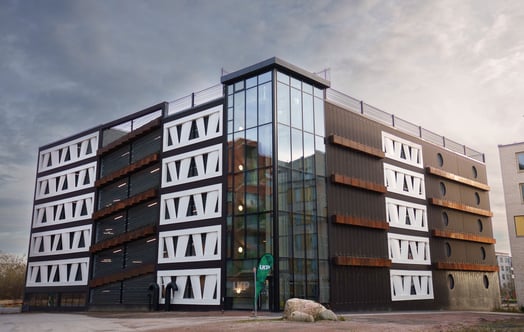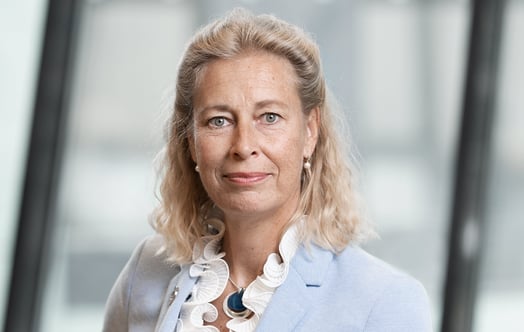
"Clear rules, greener future: enabling the needed investments in nature”
Anna Borg, President and Chief Executive Officer, Vattenfall
M. Sanjayan, Chief Executive Officer, Conservation International
The ongoing UN Biodiversity Conference (COP16) is a key opportunity to set clear investment rules and boost funding for nature-based solutions to tackle biodiversity loss and climate change.
- Nature is vital for climate stabilization, yet current investments fall short of what’s needed to meet global climate goals.
- Businesses and governments must collaborate to align economic strategies with sustainability, ensuring long-term resilience and prosperity.

The energy transition requires a careful balance and deep respect for the natural world.
Nature is not just a backdrop to our lives; it is the foundation that supports global stability and growth. Our planet's ecosystems play a crucial role in regulating the climate by storing carbon. They provide food, water, and other natural resources essential to our well-being; and they sustain biodiversity. Remarkably, nature-based solutions can contribute up to 30% of the global mitigation required by 2050 to stabilize our climate. However, investment in nature as a solution for climate remains insufficient. It is imperative that we realize the immense potential of nature to simultaneously address the climate crisis and drive economic progress and create rural jobs.
Nature as a strategic imperative for climate resilience
As climate change accelerates and affects our planet’s life-sustaining systems, we face significant economic risks: increased costs from extreme weather, supply chain disruptions, and the loss of valuable natural resources. We know that decarbonization must drastically accelerate this decade and we must utilize all tools at our disposal. Protecting and restoring nature is not merely an environmental necessity; it is a strategic imperative for resilience. By safeguarding forests, wetlands, and oceans, we enhance their capacity to absorb carbon dioxide, blunt climate impacts, and sustain the natural world that underpins our lives. This interdependence between nature and climate stability is vital for the future prosperity of nations, communities and companies worldwide.
To keep global warming below 1.5°C, as the Paris Agreement mandates, emissions need to be reduced by 45% by 2030. This goal is simply unattainable without rapid and comprehensive decarbonization and leveraging nature's potential. The good news is that we are at a moment in history that’s ripe for innovative leadership. The transition from fossil fuels presents a unique opportunity to pursue bold solutions. Nature is a proven climate solution and a valuable investment, supporting both the economy and human prosperity. More than half of the world’s GDP is moderately or highly dependent on nature, leading to significant risks if the current trends of nature loss continue. Investing in its protection will yield substantial benefits and position businesses as market leaders. Incorporating nature into business strategies is now essential, as the traditional “business as usual” approach is no longer viable. Companies must adopt innovative approaches to protect nature, recognizing that environmental stewardship is a critical driver of long-term success and competitiveness.
Transition to a nature-inclusive fossil-free future
Vattenfall is committed to leading the transition toward a fossil-free future, aiming not only to combat climate change but also to enrich society, local communities, and biodiversity. The energy transition requires a careful balance and deep respect for the natural world. Research and development efforts, along with a focus on nature-based solutions and innovations in nature-inclusive design, are essential to achieving this transition responsibly. This commitment is reflected in the ambition to adopt a net-positive approach to biodiversity.
To effectively address biodiversity loss, it is crucial to understand its impact on local communities and the benefits of tackling it. Simultaneously, broad changes are needed to influence how industries operate globally. Vattenfall takes a science-driven approach to identify key actions for protecting biodiversity within its operations. By collaborating with academic institutions, NGOs and local communities, Vattenfall develops and researches these strategies.
For example, Vattenfall’s project on the peatland restoration at Pen y Cymoedd Wind Farm in South Wales - where approximately 1,500 hectares of commercial conifer plantation is being restored to open peatland habitats that will enhance biodiversity and store carbon - is one way to invest in revitalization of nature. Another example is how Vattenfall works with nature-inclusive design at the Hollandse Kust Zuid offshore wind farm off the Dutch coast, which has been designed to increase habitats for marine life by, for example, including water replenishment holes in all the foundation t0 allow marine life to enter and exit and by designing scour protection to provide habitats for rock-dwelling organisms.
For Vattenfall, both its climate and biodiversity goals are a prerequisite to ensure resilient supply chains, secure competitiveness and contribute to the development of new business models together with partners.
Scaling nature conservation through community and corporate partnerships
Conservation International (CI) similarly operates under the principle of “nature for people”. While nature holds inherent value, protecting it at scale requires the support of the communities that benefit most from its services. Local partners are essential not only for enabling restoration and conservation efforts but also for ensuring long-term monitoring, measurement, and governance. Their involvement is crucial for sustaining these initiatives over time.
Strong relationships with local communities provide the foundation for the long-term success of our nature restoration projects. However, collaboration with companies and philanthropic efforts is what allows these initiatives to scale. By helping companies leverage their existing infrastructure and operations, CI sets new industry standards and integrate nature stewardship principles into everyday business practices.
The viability and science-based rigour of these projects make them appealing to private sector support. For example, CI’s work on the Vida Manglar blue carbon project in Colombia has successfully attracted private investment from some of the most respected companies in the world through high-integrity carbon credits, helping to preserve critical habitats while returning 92% of proceeds to the local community. Another initiative, the Conservation Stewards Program, engages local communities in conservation efforts by providing economic incentives in exchange for protecting biodiversity-rich areas.
However, to continue scaling these efforts and safeguard regions with irrecoverable carbon and innovative nature-based solutions, global leaders must help direct capital to these vital projects.
A crucial moment for global commitment to biodiversity
In October 2024, over 190 countries will convene in Cali, Colombia, for the 16th meeting of the Conference of the Parties to the Convention on Biological Diversity (COP16), which aims to implement the Kunming-Montreal Global Biodiversity Framework, a comprehensive strategy for a nature-positive future. This global roadmap for nature protection is as crucial as the Paris Climate Agreement is for climate action.
Humans depend on nature for all our food and water, many of our medicines, as well as our safety and wellbeing. Given our dependence on nature, it is crucial that we make a concerted global commitment to safeguarding it, as without this, we will not meet our climate action targets.
Right now, the funding for nature-based solutions (NBS) is alarmingly insufficient. Although $200 billion has been identified as a target under the GBF, this is only a fraction of the amount required to meet essential climate, biodiversity, and land degradation targets by 2030. COP16 offers a vital chance to significantly increase this funding.
The need for clear investment rules in biodiversity
It's crucial for governments to commit to large-scale nature protection efforts to urgently address biodiversity loss. Just as important is fostering partnerships with the private sector and financial communities to develop and fund solutions that benefit both nature and climate. Yet to facilitate the latter, we must set clear, fair investment rules to bridge these funding gaps and ensure that investments are solid, meaningful and make a difference.
Businesses and investors are poised to offer their resources and capital, but they need defined, stable guidelines to move forward confidently. COP16 must be the moment where we match action with ambition for biodiversity.
Ultimately, this action is about facts and not feelings: we simply cannot afford to ignore nature. Let’s embrace this critical decade with bold thinking and even bolder actions.
Champions for Nature: Raising Ambition, Sustaining Impact
This article is part of series of articles in the World Economic Forum’s compendium of insights ‘Champions for Nature: Raising Ambition, Sustaining Impact’ from October 2024. This compendium can be found here:
Champions for Nature: Raising Ambition, Sustaining Impact (PDF)



